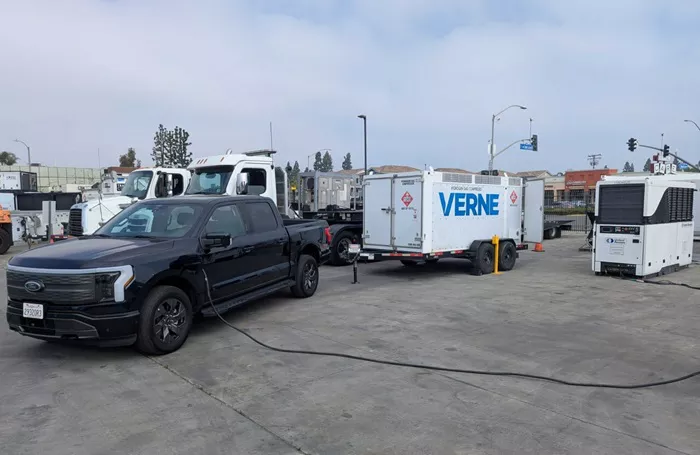Hydrogen fuel cell technology is transitioning from research labs to real-world applications. Verne, a clean energy startup based in San Francisco, is bringing zero-emission power to industries where off-grid electricity is crucial. The company’s new offering targets sectors that have relied on diesel generators, such as electric vehicle (EV) charging hubs, construction sites, ports, and remote data centers.
Rather than building its own distribution network, Verne has partnered with established rental companies that already supply diesel generators. This approach makes it easier for businesses to switch to hydrogen-powered generators, as they can rent the equipment in the same way they would conventional generators. Verne provides everything needed—hydrogen fuel, storage systems, and generator technology—in one integrated service. This reduces complexity for customers and lowers emissions and noise on-site.
Recent trials in Southern California have shown that Verne’s hydrogen units can meet power demands reliably. They also avoid the noise and regulatory issues associated with diesel generators. For urban projects, the quiet operation of hydrogen generators is not just an advantage—it is a necessity.
Strategic Partnerships Accelerate Growth
Verne’s decision to partner with a leading national rental company has helped it expand more quickly into the commercial market. By leveraging existing customer relationships and nationwide logistics, the company can scale faster and at a lower cost.
These partnerships also align with growing demand for sustainable alternatives. Many rental companies are under pressure to offer greener options as businesses set their own emissions reduction goals. By combining hydrogen storage, fuel delivery, and generator technology into one service, Verne makes it easier for rental companies to meet those demands.
Verne’s innovative approach has attracted backing from investors such as Amazon’s Climate Pledge Fund, Caterpillar VC, and NextEra Energy Resources. The company also has support from agencies like ARPA-E and the U.S. Army. This funding will help Verne expand its services to more regions and refine its technology to meet the demands of larger commercial operations.

